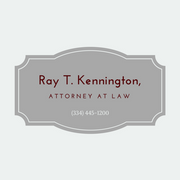Paying Child Support? Here's How Bankruptcy Affects the Agreement

Falling behind with financial obligations can be overwhelming. Late fees and high interest rates make it harder to get finances back on track. That’s why many people file for Chapter 7 and Chapter 13 bankruptcy. Bankruptcy laws dissolve some debts so they can concentrate on paying back others. Although child support won’t go away, here is a closer look at how bankruptcy affects it.
Under Chapter 7, Child Support Is Paid First
 Under bankruptcy law, there are certain unsecured debts that are non-dischargeable. Referred to as priority claims, these typically include child support as well as taxes and alimony. When filing for Chapter 7, the court expects these debts to be paid before any other debts that aren’t backed by collateral. After bankruptcy is over, you’re expected to continue making payments, including the overdue installments. In regards to child support, bankruptcy law does not protect you from creditors trying to settle debts. They can still file lawsuits and collect earnings you make after filing for bankruptcy.
Under bankruptcy law, there are certain unsecured debts that are non-dischargeable. Referred to as priority claims, these typically include child support as well as taxes and alimony. When filing for Chapter 7, the court expects these debts to be paid before any other debts that aren’t backed by collateral. After bankruptcy is over, you’re expected to continue making payments, including the overdue installments. In regards to child support, bankruptcy law does not protect you from creditors trying to settle debts. They can still file lawsuits and collect earnings you make after filing for bankruptcy.
With Chapter 13, Child Support Is Covered in Repayment Plans
If you file for Chapter 13 bankruptcy, you have a set amount of time to repay priority claims, typically three or five years. This includes back payment for child support. A bankruptcy attorney can help you determine whether you can cover the payments within five years. If not, you might have to retool your budget to make larger payments.
To further understand your rights and obligations when filing for Chapter 7 or 13 bankruptcy, contact Ray T. Kennington, Attorney At Law. Serving clients in Ozark and Enterprise, AL, since 1982, the counselor is familiar with how bankruptcy law affects child support and alimony. He can also assist with your family law matters to regain financial stability. To schedule a consultation, call (334) 445-1200. Learn more about how the lawyer can help with your case online.
About the Business
Have a question? Ask the experts!
Send your question

